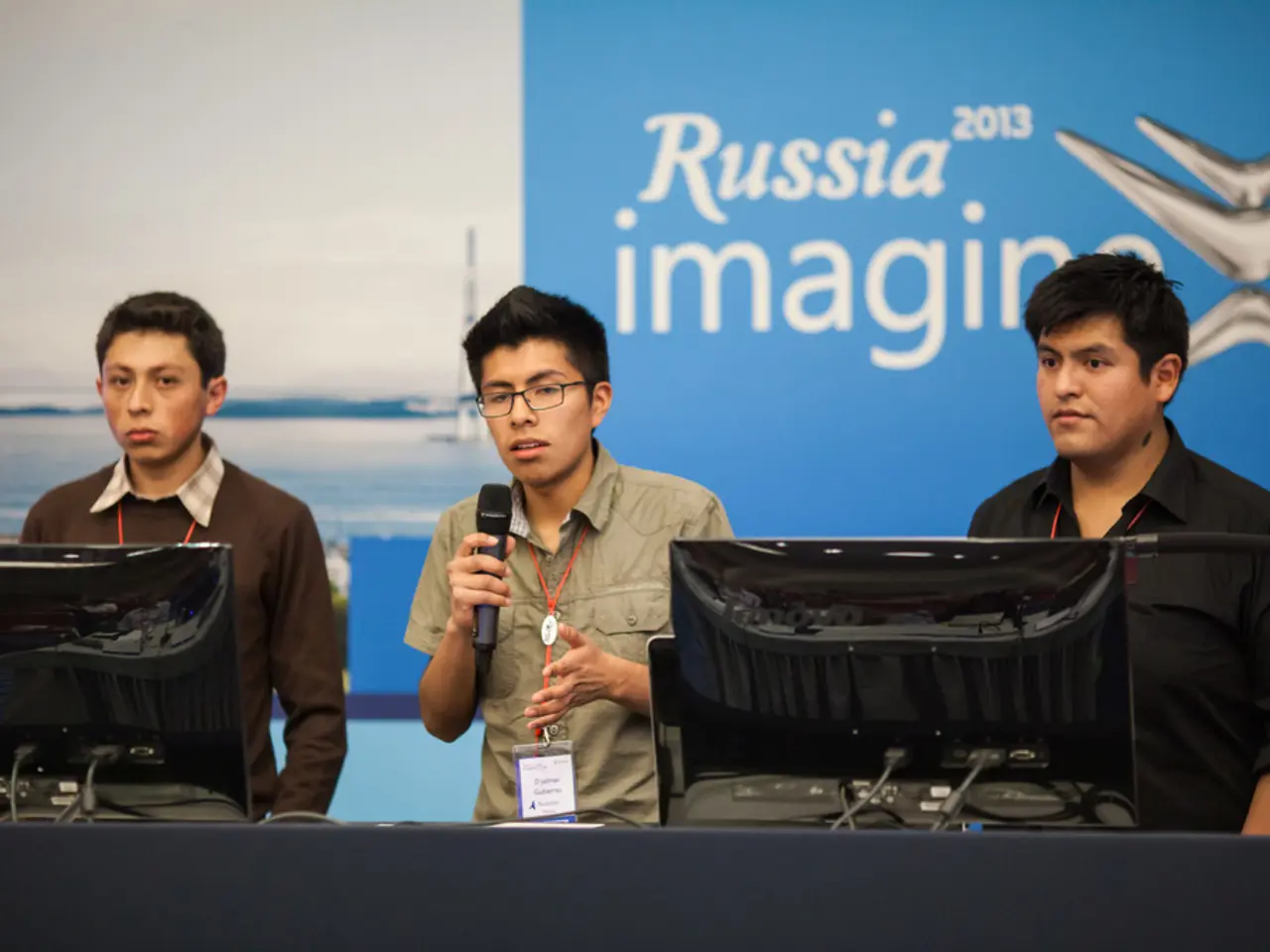Uncertainty over AI chip imports from the U.S. persists, according to Tencent, as governments continue their negotiations.
Tencent Navigates AI Chip Import Uncertainty Amid U.S.-China Tensions
In the midst of ongoing negotiations between Beijing and Washington, Tencent, a major Chinese tech giant, has expressed uncertainty about the import of AI chips. This uncertainty stems from the delicate state of advanced semiconductor trade, particularly the Nvidia H20 chips, designed for the Chinese market.
Despite the U.S. export curbs, Tencent maintains it has sufficient AI chips for its operations. However, the company's ability to import the Nvidia H20 AI chips has been impacted by geopolitical tensions and security concerns. Chinese authorities, including regulators, have recently summoned Tencent, along with other major firms like ByteDance and Alibaba, to address these concerns. As a result, Tencent has suspended orders for the H20 chips amid fears of surveillance and dependency.
Nvidia has also responded by instructing its suppliers, including Amkor Technology and Samsung Electronics, to halt production of the H20 chip for the Chinese market. This move reflects the complex nature of negotiations and export controls between the U.S. and China.
Beijing is seeking to lift export restrictions on key chip technologies, including High Bandwidth Memory (HBM) which is critical for AI chips. However, the status of these negotiations and their impact on Tencent's AI chip imports remains unclear.
Despite these challenges, Tencent reported strong second-quarter results. Revenue rose 15% to 184.5 billion yuan ($25.7 billion), with marketing services revenue increasing 20% year-on-year, bolstered by the use of AI to enhance the targeting of adverts. Net profit for the quarter reached 55.6 billion yuan, surpassing analyst expectations of 52.3 billion yuan.
Tencent President Martin Lau stated that the company is waiting for clarity on the import situation. He also signaled a more measured approach to AI investments, focusing on sustainable monetization and spending smartly for future AI initiatives. The company's capital expenditure on AI has moderated recently, falling from 36.6 billion yuan in Q4 2024 to 19.1 billion yuan in Q2.
Tencent's AI ambitions continue to progress, with the development of its own large language model, Hunyuan, and the launch of the latest "Turbo S" version in February. The company has also integrated third-party models, notably DeepSeek's technology, across its platforms, including WeChat, which has over 1 billion monthly active users.
In summary, while Tencent remains operational, its import of Nvidia H20 AI chips is effectively suspended for now due to security concerns and political pressures related to U.S.-China technology trade issues. The company continues to focus on sustainable growth and smart investment in AI technologies.
Sources: [1], [2], [3], [4]
Exchange rate: $1 = 7.1756 Chinese yuan renminbi
Tencent's uncertainty about the import of AI chips, particularly the Nvidia H20 chips, is deeply rooted in the geopolitical tensions and security concerns between the U.S. and China. The company's AI investments, however, are showing a more deliberate and strategic approach, focusing on sustainable monetization and spending wisely for future AI initiatives.




